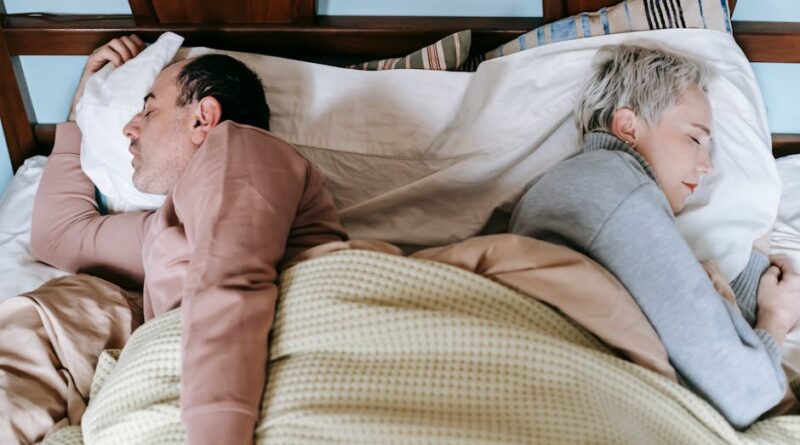How to Get Quality Sleep as You Age
How to Get Quality Sleep as You Age
Good sleep is crucial at any age, but it becomes increasingly important as we grow older. Changes in sleep patterns are common with aging, but poor sleep isn’t inevitable. Understanding what affects sleep quality can help you take steps to ensure you get the rest you need. In this comprehensive guide, we’ll explore how to get quality sleep as you age.
The Importance of Quality Sleep
Sleep is essential for overall health and well-being. It plays a vital role in physical health, brain function, and emotional well-being. Here are some reasons why quality sleep is important:
- Physical Health: Sleep helps repair and rejuvenate the body. It supports a healthy immune system, promotes heart health, and helps maintain a healthy weight.
- Mental Health: Quality sleep improves cognitive function, including memory, problem-solving, and concentration. It also reduces the risk of mental health issues such as depression and anxiety.
- Emotional Well-being: Adequate sleep helps regulate emotions and reduces stress. It contributes to a positive mood and overall sense of well-being.
Common Sleep Changes with Aging
As we age, several changes in sleep patterns may occur. Understanding these changes can help you adapt and improve your sleep quality:
- Reduced Sleep Duration: Older adults may sleep fewer hours than they did when they were younger.
- Fragmented Sleep: Sleep may become more fragmented with frequent awakenings during the night.
- Changes in Sleep Stages: There may be a decrease in deep sleep (slow-wave sleep) and an increase in lighter sleep stages.
- Earlier Bedtimes and Wake Times: Many older adults tend to go to bed and wake up earlier than they did in their younger years.
Factors Affecting Sleep Quality in Older Adults
Several factors can affect sleep quality as we age. Being aware of these factors can help you address them effectively:
1. Medical Conditions
Chronic medical conditions such as arthritis, diabetes, and heart disease can disrupt sleep. Additionally, conditions like sleep apnea and restless legs syndrome are more common in older adults.
2. Medications
Many medications prescribed for chronic conditions can interfere with sleep. Common culprits include medications for hypertension, depression, and allergies.
3. Lifestyle Factors
Lifestyle choices such as diet, physical activity, and alcohol consumption can significantly impact sleep quality. For example, consuming caffeine or alcohol close to bedtime can disrupt sleep.
4. Environmental Factors
Environmental factors such as noise, light, and room temperature can affect sleep quality. Creating a comfortable sleep environment is essential for restful sleep.
Actionable Tips for Improving Sleep Quality
Improving sleep quality as you age requires a holistic approach. Here are some actionable tips to help you get better sleep:
1. Establish a Consistent Sleep Schedule
Go to bed and wake up at the same time every day, even on weekends. Consistency reinforces your body’s natural sleep-wake cycle.
2. Create a Relaxing Bedtime Routine
Develop a calming pre-sleep routine to signal your body that it’s time to wind down. This could include activities such as reading a book, taking a warm bath, or practicing relaxation techniques like deep breathing or meditation.
3. Optimize Your Sleep Environment
Make your bedroom conducive to sleep by keeping it cool, dark, and quiet. Invest in a comfortable mattress and pillows, and consider using blackout curtains or a white noise machine to block out disturbances.
4. Be Mindful of Your Diet
Watch what you eat and drink, especially in the hours leading up to bedtime. Avoid large meals, caffeine, and alcohol close to bedtime, as they can interfere with sleep.
5. Stay Physically Active
Regular physical activity can promote better sleep. Aim for at least 30 minutes of moderate exercise most days of the week. However, avoid vigorous exercise close to bedtime, as it may make it harder to fall asleep.
6. Manage Stress and Anxiety
Stress and anxiety can take a toll on sleep quality. Practice stress-reducing techniques such as mindfulness, yoga, or journaling to help calm your mind before bed.
7. Limit Naps
While short naps can be refreshing, long or irregular napping during the day can negatively affect nighttime sleep. If you need to nap, try to keep it to 20-30 minutes and do so earlier in the day.
8. Seek Medical Advice
If you have persistent sleep problems despite following good sleep hygiene practices, consult a healthcare professional. They can help identify any underlying issues and recommend appropriate treatments or therapies.
The Role of Sleep Technology
Advancements in sleep technology can also play a role in improving sleep quality. Here are some tools and devices that can help:
- Sleep Trackers: Wearable devices and smartphone apps can monitor your sleep patterns and provide insights into your sleep quality.
- Smart Mattresses: Some mattresses are designed to adjust to your body’s needs and provide optimal support and comfort.
- White Noise Machines: These devices can help block out disruptive noises and create a soothing sleep environment.
- Light Therapy Devices: Light therapy can help regulate your sleep-wake cycle, especially if you have difficulty falling asleep or waking up at the desired times.
Conclusion
Quality sleep is essential for maintaining health and well-being as you age. While changes in sleep patterns are common, there are many steps you can take to improve your sleep quality. By understanding the factors that affect sleep and implementing actionable tips, you can enjoy restful and rejuvenating sleep at any age. If sleep problems persist, don’t hesitate to seek medical advice to address any underlying issues. Sweet dreams and good night!

